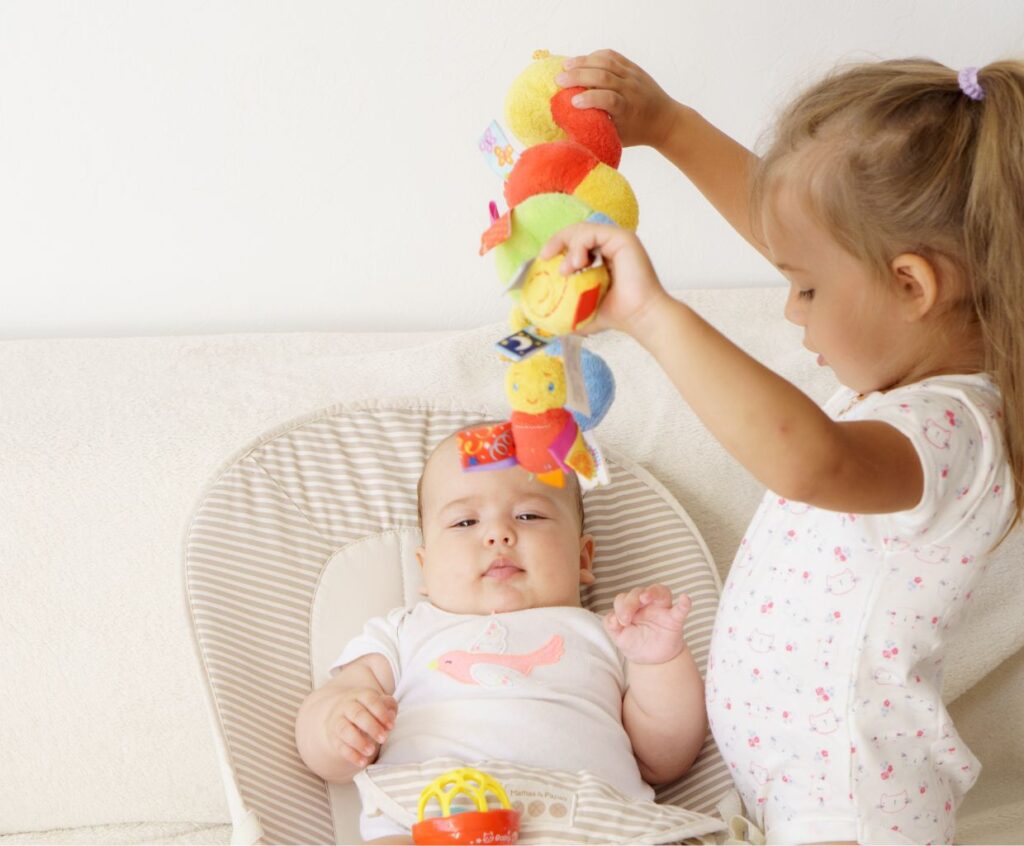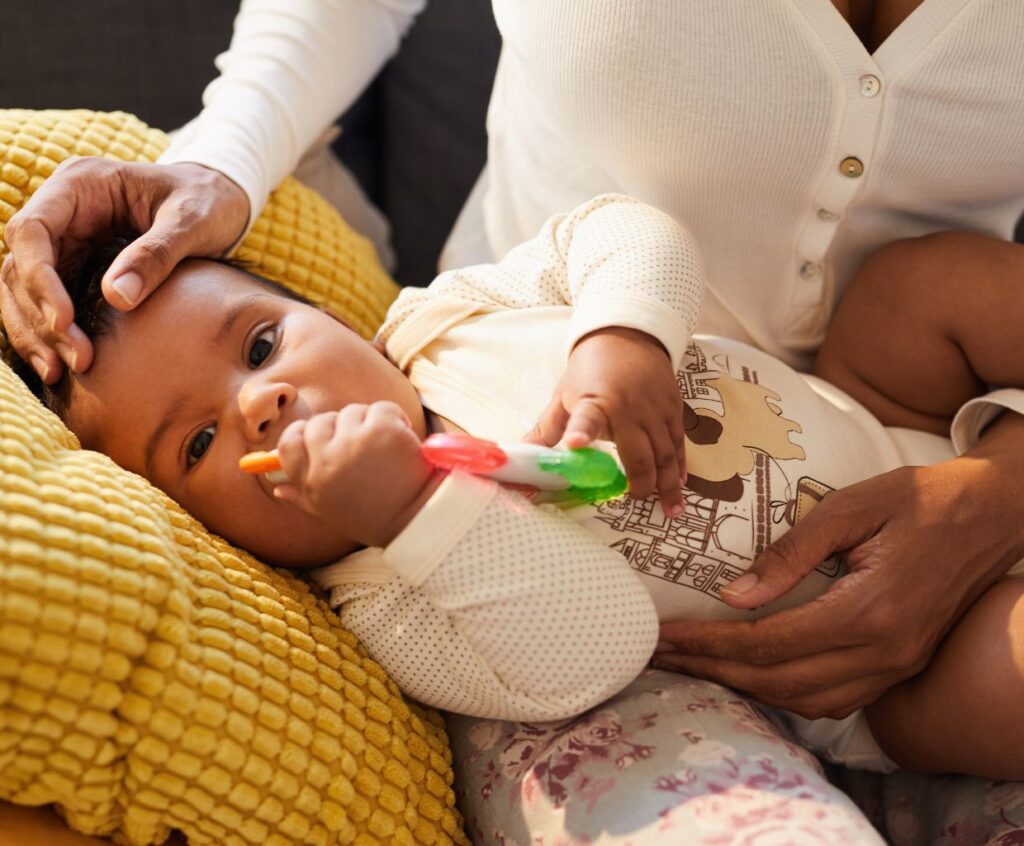Choosing the Best Toys for Newborns: A Guide to Early Development
Welcome to our guide on choosing the best toys for newborns! It’s an exciting time when a new baby arrives, and as parents, we want to provide our little ones with the best environment for their early development.
Toys play a crucial role in stimulating their senses, promoting cognitive growth, and fostering physical skills. In this article, we will explore some essential factors to consider when selecting toys for newborns, ensuring their playtime is fun and beneficial for their overall development.
1. Safety First
When it comes to newborns, safety is paramount. Always choose toys that meet the necessary safety standards, have no small parts that could pose a choking hazard, and are free from harmful chemicals. Look for toys that are BPA-free and have been tested for safety.
2. Stimulating the Senses
Newborns are discovering the world through their senses, so it’s important to choose toys that stimulate their senses of sight, touch, sound, and taste. Brightly colored toys with high-contrast patterns are excellent for visual stimulation, while toys with different textures provide tactile exploration. Toys with gentle sounds or soft music can engage their auditory senses.
3. Age-Appropriate Toys
Considering the age recommendations on toy packaging is crucial. Newborns have limited motor skills and hand-eye coordination, so look for toys that are easy to grasp and manipulate. Toys with smooth edges and soft materials are ideal for their delicate little hands. Rattles, soft plush toys, and teething rings are great options for this stage.
4. Simple and Versatile
Newborns are easily overwhelmed, so it’s best to choose simple and not overly stimulating toys. Toys with too many lights, sounds, or moving parts can be too much for their developing senses. Opt for toys that allow for open-ended play, encouraging their imagination and creativity.
5. Social Interaction
Even at a young age, babies benefit from social interaction. Look for toys that promote bonding and communication between you and your baby. Soft dolls, hand puppets, or toys encouraging eye contact and response are excellent choices.
Are there specific toys or features that are recommended for promoting motor skills in newborns?
When it comes to promoting motor skills in newborns, there are a few recommended toys and features that can be beneficial:
1. Mobiles: Hanging mobiles with bright colors and interesting shapes can encourage newborns to track movement with their eyes, promoting visual tracking skills.
2. Playmats: Play mats with different textures, patterns, and objects hanging overhead can help stimulate a newborn’s senses and encourage reaching, grasping, and tummy time.
3. Rattles: Lightweight and easy-to-grasp rattles can help newborns practice gripping and develop hand-eye coordination.
4. Soft toys: Soft toys with different textures, such as plush animals with crinkly parts or squeakers, can encourage exploration and tactile development.
5. Activity gyms: Activity gyms with hanging toys, mirrors, and various sensory features can allow newborns to practice reaching, grabbing, and kicking.
6. Softballs: Soft, lightweight balls can be introduced to newborns as they develop their motor skills. Rolling or passing the ball back and forth can help with hand-eye coordination and tracking.
It’s important to note that newborns should always be supervised during playtime, and toys should be age-appropriate, safe, and free from small parts that could pose a choking hazard. Additionally, interacting with caregivers through gentle touch, holding, and movement can promote motor skill development in newborns.
What role do interactive toys play in fostering social and emotional development in newborns?
Interactive toys play a crucial role in fostering social and emotional development in newborns. These toys provide various opportunities for newborns to engage in interactive play, which helps develop their social and emotional skills. Here are some ways interactive toys contribute to newborns’ development:
1. Sensory Stimulation: Interactive toys often have different textures, colors, and sounds that stimulate a newborn’s senses. This sensory stimulation helps newborns develop their sensory skills, which are essential for overall cognitive development.
2. Bonding and Attachment: Interactive toys allow newborns to engage in interactive play with their caregivers. This playtime helps build a bond and attachment between the newborn and their caregivers, which is crucial for their emotional development.
3. Communication Skills: Interactive toys often have features that respond to a newborn’s actions, such as lights or sounds. Newborns learn cause-and-effect relationships and develop communication skills by engaging with these toys. They understand that their actions can elicit a response, which encourages them to communicate and interact with their environment.
4. Emotional Regulation: Interactive toys can help newborns regulate their emotions. For example, some toys have soothing sounds or soft lights that calm a newborn when upset or overwhelmed. Interacting with these toys teaches newborns to self-soothe and regulate their emotions.
5. Cognitive Development: Newborns can develop their cognitive abilities through interactive play. They learn problem-solving skills, develop their memory, and enhance their ability to focus and concentrate. Interactive toys often allow newborns to explore and learn about their surroundings, fostering cognitive development.
Overall, interactive toys play a vital role in fostering social and emotional development in newborns. They provide sensory stimulation, bonding, communication, emotional regulation, and cognitive development opportunities. Caregivers should choose age-appropriate interactive toys that are safe and encourage engagement and interaction.
Choosing the Best Toys for Newborns – Conclusion
Choosing the best toys for newborns is an exciting task that can positively impact their early development. By considering their safety, sensory stimulation, age-appropriateness, simplicity, and social interaction, you can provide your little one with toys that entertain and contribute to their growth.
Remember, each baby is unique, so observe their preferences and adapt accordingly. Happy toy hunting!


